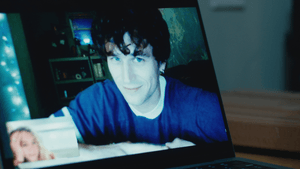Treatment GuideJust DiagnosedSex & DatingAfrican AmericanStigmaAsk the HIV DocPrEP En EspañolNewsVoicesPrint IssueVideoOut 100
CONTACTCAREER OPPORTUNITIESADVERTISE WITH USPRIVACY POLICYPRIVACY PREFERENCESTERMS OF USELEGAL NOTICE
© 2026 Pride Publishing Inc.
All Rights reserved
All Rights reserved
By continuing to use our site, you agree to our Privacy Policy and Terms of Use.
When I first started working in an HIV clinic I always asked clients what were to me the most obvious questions: 'What is it like for you to have the virus?' 'What was it like for you when you initially found out?' 'How do you view HIV in your life?' Being HIV-negative at the time, I felt that contracting the virus was catastrophic--the worst thing in the world that could possibly happen to someone. I imagined that the responses would be in line with this catastrophic thinking--about how they lived in fear, how it ruined their lives. For some of my clients, these were their responses; however, they were the minority. Most people's responses surprised me greatly, and they radically changed my perception of the illness, especially because their outlook was so positive: 'It was the best thing that happened to me,' 'It saved my life,' 'My life has more meaning than it ever has,' 'I'm grateful for things I used to take for granted.' When I explored further, the people who responded this way elaborated that they had been on a self-destructive path that needed to change, or that they had been complacent in life, or that they had found themselves worrying greatly about things they later realized didn't really matter. Some realized that they had been shallow or more worried about image than reality. And some sensed that they had been complaining about insignificant matters. On a certain level I understood these answers. However, I didn't really understand them until I experienced it myself. In my case I became gravely ill and required five days' hospitalization, fighting a major stomach virus at the same time that I was seroconverting. The doctor called it acute HIV Infection. I was so sick that I was nearly dead. In the hospital my viral load soared to about 700,000 and my body had not yet developed the antibodies to fight the invasion of the virus. I was terrified. Enormously sad. Disoriented. Confused. Changed. My illness shook me profoundly. I found myself in a completely foreign world. I was faced with uncertainty laced with my own mortality, and I was questioning how I had arrived where I was--alone in a hospital room where I was constantly poked and prodded with needles and running to the bathroom every 20 minutes. And crying in between. One of my close friends (the most spiritually inclined) once said physical illness is the modern equivalent of a pilgrimage. At first I thought he was crazy for saying so, but then I looked closely at the insanity I then inhabited. Cornered into a reality I couldn't escape, I was forced to look within for answers I had previously tried to find from outside. And while escapism was certainly tempting--and I succumbed to it from time to time--I realized that it ultimately ceased working. It never changed my ultimate reality. Last month I revealed far more of myself than in previous columns. This month I say, 'While we're at it, I might as well go all the way.' In my case, HIV shook me into sobriety and brought a period of self-destructive escapism to a screeching halt. Rather quickly, in my own little forced detox otherwise known as my hospital room, I became one of those clients I counseled at the clinic, whose answers had baffled me but that I now echoed. Isolated on a floor in a hospital with other immune-compromised patients and unable to leave my room for five days, I was forced to think. And meditate. And reflect. And slowly, inexorably, I too realized that HIV was a tremendous gift that quite possibly--and definitely paradoxically--saved my life.
From our Sponsors
Most Popular
“So much life to live”: Eric Nieves on thriving with HIV
September 03 2025 11:37 AM
The Talk: Beyond the exam room
August 13 2025 3:15 PM
Messenger RNA could be the key to an HIV vaccine — but government cuts pose a threat
August 20 2025 8:02 AM
It’s National PrEP Day! Learn the latest about HIV prevention
October 10 2025 9:00 AM
Amazing People of 2025: Javier Muñoz
October 17 2025 7:35 PM
The lab coat just got queer
August 21 2025 10:00 AM
The Talk: Owning your voice
August 25 2025 8:16 PM
“I am the steward of my ship”: John Gibson rewrites his HIV narrative
September 16 2025 2:56 PM
Plus: Featured Video
Latest Stories
HIV-positive men stage 'Kiss-In' protest at U.S.-Mexico border
December 01 2025 12:56 PM
What the AIDS crisis stole from Black gay men
December 01 2025 6:00 AM
The Talk: Navigating your treatment
August 01 2025 6:02 PM
The Talk: Starting the conversation
July 25 2025 4:47 PM
Thanks to U=U, HIV-positive people can live long, happy, healthy lives
July 25 2025 2:37 PM
How the Black AIDS Institute continues to fill in the gaps
July 25 2025 1:06 PM
“I felt like a butterfly”: Niko Flowers on reclaiming life with HIV
July 23 2025 12:22 PM
Dancer. Healer. Survivor. DéShaun Armbrister is all of the above
July 02 2025 8:23 PM
BREAKING: Supreme Court rules to save free access to preventive care, including PrEP
June 27 2025 10:32 AM
1985: the year the AIDS crisis finally broke through the silence
June 26 2025 11:24 AM
VIDEO: A man living with HIV discusses his journey to fatherhood
June 10 2025 4:58 PM
Trump admin guts $258 million in funding for HIV vaccine research
June 03 2025 3:47 PM
Grindr is reminding us why jockstraps are so sexy and iconic
May 02 2025 5:36 PM
HRC holds 'die-in' to protest Trump health care cuts
April 28 2025 2:11 PM
Two right-wing Supreme Court justices signal they may uphold access to PrEP and more
April 21 2025 4:10 PM
500,000 Children at Risk: PEPFAR Funding Crisis
April 08 2025 3:51 PM






































































